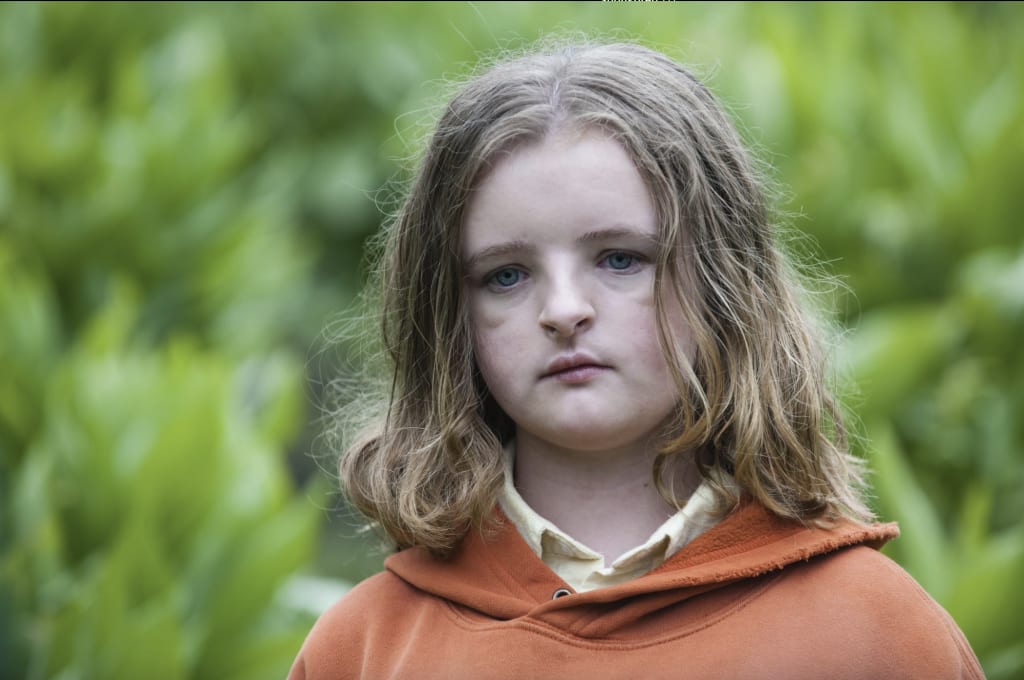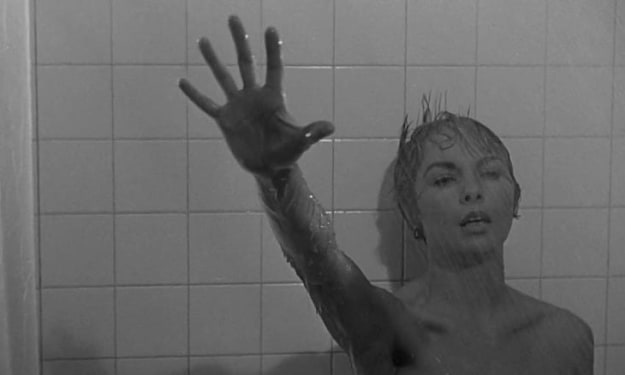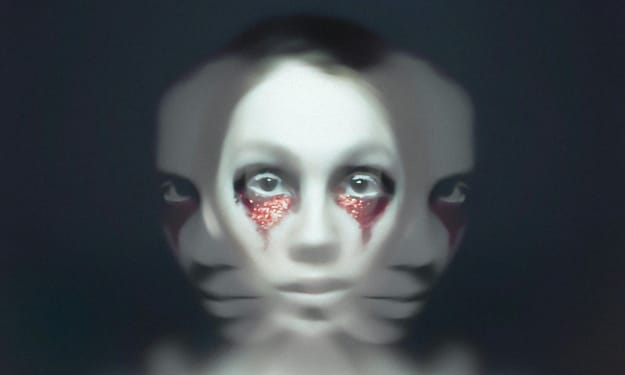The Film That Scared Me Most as an Adult: Hereditary
Ari Aster’s jaw-dropping directorial debut

Trigger AND spoiler warning
---
For much of my adult life, I didn't think very highly of the horror genre. I still enjoyed a good scary movie, but entire years seemed to go by without the slightest deviations from the standard old formulas. Each year brought with it a new onslaught of blockbusters with a recycled series of jump scares and ghastly looking ghosts, demons and ghouls. I'd grown to accept that the horror genre as a whole was something tired and contrived.
Of course, Hollywood isn't exactly known for its inventiveness.
Comedies aren't always the deepest, and action movies can be formulaic. The Fast and the Furious films might melt rubber but they don't exactly reinvent the wheels in their wake. And the world would probably have survived without the Scary Movie franchise and its various offshoots and cousins.
But for the most part, the films had their distinctions and cultivated energies and environments unique enough to prevent them from growing stale in the minds of masses. I could forgive the repetition. With few exceptions, like The Blair Witch Project, The Grudge, 28 Days Later, Paranormal Activity and Get Out, the horror empire seemed for so long to subsist on all of the same old copy & paste caricatures and hackneyed hokum. In my lifetime, I don't think there's any genre of film that's suffered so gravely from a lack of ingenuity as horror has.
Maybe I was living under a rock. Or maybe I just wasn't scouring dark enough closets and craven enough websites. As the better part of a decade went by, I'd more or less accepted that the adventuring that was going to happen within the world of horror had taken place before I was even born. But Ari Aster was the director who singlehandedly changed that view.
A24 films had already achieved cult status by the time they joined forces with Aster and cinematographer Pawel Pagorzelski with films such as Ex Machina, Room, The Witch, and Moonlight, which won the Best Picture Oscar in 2017. But to combine Aster's attention to detail with the studio's flair for risk, tension and innovation was a cinematic match made in heaven - or in the most fiery pits of hell. The director's depraved mind makes even some of Stephen King's darker works look forgiving by comparison. Some even outright tepid. That Hereditary is Aster's debut to the world of feature-length films speaks all the more to the gravity of this shell-shocking accomplishment.
Sitting down to Hereditary for the first time alone on my sofa one summer night, I didn't know what to expect. I naively thought that the movie was just an entry in a runaway franchise like The Conjuring or Child's Play. But I didn't do my research.
It's within only the opening seconds of Hereditary that it grows clear the movie belongs to a terrifying and separate new breed of horrors all its own.
The opening shot of Hereditary is a slow, methodical zoom into a miniature diorama made by the mother, Annie. As the camera continues to pan in, we see that the diorama is a perfectly realized replica of her family's home. The zoom leads us directly into the bedroom of her son, Peter, seamlessly transitioning between the miniature world and the real one. This initial merging of worlds establishes a tone of both eerie pre-ordainment and capricious inconsequence. The sense of reality is expertly skewed from the film's very onset.
The opening seconds are composed with such a meticulous attention to detail that it characterizes the movie within a single shot. The combined efforts of Aster and Pagorzelski color the film before we've met a single one of its characters. It's slow-building, strange, deliberate and dissonate. It's driven and haunting and it's all carried out with the frightful precision of a puppetmaster. There are few films ever crafted that have expanded more with each subsequent viewing. It dwarfs even The Sixth Sense in its abounding double meanings. It even borrows Toni Collette to help perpetrate all of its devious double entendres. The foreshadowing is ever-present, but masterfully cryptic.
One of Hereditary's greatest strengths is its unnervingly realistic characters. Collette delivers a performance which can be aptly considered a career best. The visceral range of emotion she musters is one of the only roles within the horror idiom that can be duly compared with The Shining's Shelley Duvall. In my eyes, Collette is possibly the lone actress to surpass those excruciating heights of anguish achieved in the 1980 film. Collette is disturbed, mercurial and electrified. She's gripping, desperate, erratic and thoroughly discomfitting.
Steve, played by Gabriel Byrne, is the most measured member of the family, trying his best to remain a paternal rock as things begin going horribly awry. He's tortured but stern and diplomatic. Alex Wolff, who I discovered ironically through his Nickelodeon role in The Naked Brothers Band, is an unexpectedly perfect fit as the son of the family, Peter. With his dynamic and vulnerable performance, his discomfort is pain-stakingly pronounced. The nuance of emotion on his face explored within the film's long, drawn out shots is enough to make the audience squirm in their seats with mouths open and eyes rapt.
Milly Shapiro, cast as Annie and Gabriel's daughter, is the spitting image of unsettling. From her stilted walk, stoic demeanor and deadened stare, to her horrid clicking sounds that punctuate the film, she, too, achieves the rare honor of surpassing the child stars of some of the greatest suspense films ever released. Her gut-wrenchingly raw, eccentric and enigmatic portrayal of Charlie is an eye-stealing performance. Even though she's only around for the first act of the movie, her presence is one that can be uniformly felt for the remainder of the film.
The scene of her death is one I'll never fully be able to erase from my mind. In the throes of an allergy attack, Peter, frantically begins driving her to a hospital. As she squirms and struggles for breath in the back seat, desperately kicking the walls of the car, the viewer can feel her agony. Stretching her head out of the window in a last ditch attempt to get air, she hits a pole and is decapitated instantaneously. The silence that proceeds from there is simply soul-crushing. As Charlie's body lays lifeless in the backseat, all we can hear is the sound of Peter's labored breath and our terribly beating hearts.
The first time watching the scene, I sat there in frozen disbelief alongside Peter, tears welling in his eyes and his trembling hands descending slowly from the wheel. After a minute of painful silence, he drives soberly home, opens the front door, and returns to his bedroom - leaving the bleeding corpse of his sister in his backseat.
We watch as he lies awake in bed, petrified. The morning arrives with a guttural scream of primal despair as his mother discovers her headless daughter. The scene then flashes jarringly to the disembodied head lying on the side of the road -flesh ripped graphically open and being wholly devoured by ants. It's one of the most shocking, harrowing sequences I've ever witnessed.
By this point, my expectations of another typical horror movie had been buried sixty feet deep in a desecrated burial ground. What little expectation of it that I had remaining went disquietingly unfulfilled. It's not a simple tale of a departure and a ghostly return. What the film has in store for its final two acts is something far more sinister.
A kind-hearted stranger, Joan, played by Ann Dowd, approaches Annie as she sits in her car one night, scared to go to enter the support group she'd driven to. She quickly becomes the most supportive of friends as the two of them grieve their losses together.
One day, as Annie's leaving the grocery store, Joan approaches her with an unbridled glee in her eyes. She explains that she had seen a medium, and that she has found joy and closure in the reunion with her lost grandson they offered her. She cordially coaxes Annie to her house so that she can prove it to Annie herself. And what Joan shows her brings on a catharsis so powerful that Annie can't help but attempting a seance with her own family.
In one of the movie's most deranged moments, the spiritual reunion goes horribly wrong. Though Joan's intentions had seemed benevolent, by the end of the film we learn that every moment of the entire plot was leading toward an insidiously engineered and cultish outcome- one where Charlie and her departed grandma resume demonic lives in the fresh bodies of deceased loved ones. It's twisted.
More than any other horror movie I've seen as an adult, Hereditary is one that understands what scary is. It understands that tropes and cliches can't do a film's heavy lifting, no matter how haunted the house, or scary its ghosts. Horror hinges on novelty. It thrives on the relentlessly unexpected. It depends on personality. And the chemistry between characters on display within Hereditary - or utter volatility - leaves the viewers on the edge of their seats, shocked and unguarded. It's that discordant element of family drama that bends the genre to its breaking point. But instead of falling over the fringe, it lingers and revels on that hauntingly thin line.
The final act of the film descends carefully into one of the most drawn out and diabolical sequences ever brought to the big screen. But even as it spirals into measured madness, it never becomes a rollercoaster. It's a slow-rolling merry-go-round of pointed, calculated dread. A sedated camera reveals a house full of occult and arcane horrors.
One of the film's driving forces is its sound score. Composed by Colin Stetson, and interlaced with a haunting series of avant garde woodwinds and synthesizers, it's one of the most immersive and impeccably composed soundtracks in memory. The song of the film's final sequence, "Reborn," carries the film through its bleak, morbid and grand culmination. It's a melodic sort of cacophany and it's the cherry on top of a cinematic masterpiece that oozes perfection and unease from its every orifice. It's climactic, transcendent, mystical, and otherworldly, and it hypnotically ties together a broken web of foul and distended loose ends.
If there's a flaw anywhere in sight in this quintessential horror movie, it's in the slight over-exploration of an idea that might have been best left fully ambiguous. But by the release of Midsommar the following year, it was a lesson that Aster seemed to have learned in spades.
Its cast exudes far more depth of character than most would think a horror movie would even require, but that's what exalts Hereditary above its contemporaries and spells the legacy of Ari Aster. It's one of the films that helped to cement A24 with near irreproachable legend status that it's attained in recent years.
In the cyclical world of horror films, Hereditary shattered my beliefs in the most welcome way imaginable. It was an overdue reminder of the potent, lingering dread true suspense can instill when done with care and flair. Its intricate details, unfiltered performances, and chillingly patient build produce an unparalleled cinematic experience that doesn't just startle or surprise, but disturbs to the very core.
Hereditary wasn't just another horror blockbuster to watch and forget; it was a terror that arrived with an indelible stain. It left images in my mind that some viewers wouldn't touch with a fifty foot pole even if it were christened by the world's most highly ordained exorcist. But that's what makes Hereditary stand distinctly as the movie that scared me the most as an adult.
About the Creator
Ben Ulansey
Ben is a word enthusiast who writes about everything from politics, religion, film, AI and videogames to dreams, drones, drugs, dogs, memoirs, and terrorizing Floridians with dinosaur costumes.






Comments
There are no comments for this story
Be the first to respond and start the conversation.